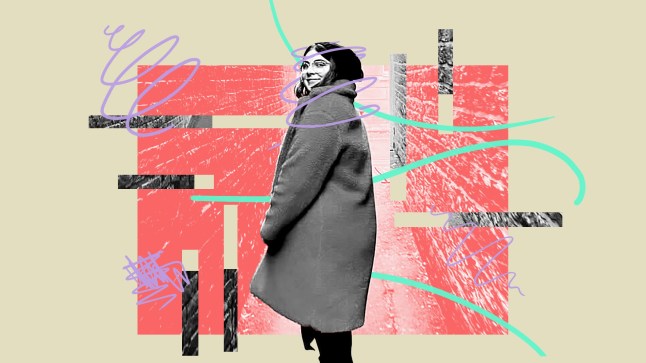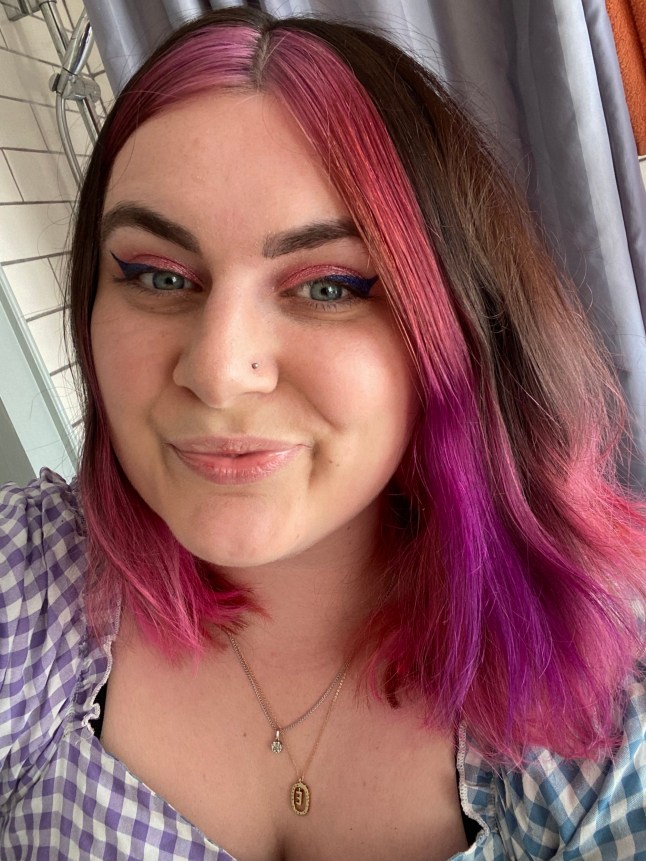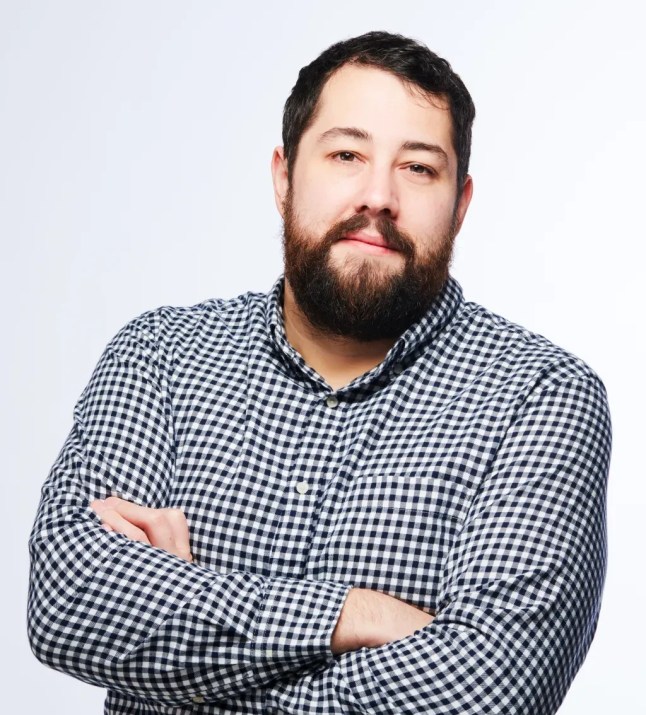
TikTok told me that my ADHD was a superpower. And I believed it – but only for about five minutes.
Scrolling on the app after I was first diagnosed, I was desperate to find ‘my people’ – the ones who would make me feel seen. Less like a jigsaw puzzle that simply didn’t fit, and more like a person who simply thought differently.
My feed was suddenly inundated with people who were just like me: chaotic, creative, chatty, and crucially, late for everything.
But then, on countless podcasts and social media posts, I saw other neurodivergent people encouraging their fellow ADHDers to view their condition not as something to hold them back, but as a ‘superpower.’
For a fleeting moment, I wanted to believe it. Understanding my true self and unlocking the answers to questions I’d chased after for so long was liberating, but afterwards came a heavy realisation: I’d spent more than 20 years not understanding my own brain. I mourned that loss of time.
The problem is that that version of ADHD doesn’t exist for me. I wanted to believe that I could sugarcoat this diagnosis – and that reframing it might somehow make it easier. I could let the subsequent grief destroy me, or I could take another spin on it.
Pretty quickly, though, I realised that it simply wasn’t going to work for me.
Looking at ADHD like some kind of Marvel origin story is toxic positivity at its finest, trying to force us to perennially see the ‘good’ in the condition while ignoring the difficulties that come with it.
It plays into the idea that, for people living with ADHD to be palatable, we exclusively need to play into our strengths – and ignore how debilitating living in a world designed by and for neurotypical people is.

That’s why I believe that now is the time for us to stop perpetuating this rhetoric – because not only does it misrepresent ADHD as something that can and should predominantly be used to our advantage, but it also suggests that we can almost ‘girl boss’ our way out of the ableism that still oppresses neurodivergent people every single day.
Trying to lean on my ‘strengths’ all the time is exhausting – and this mentality doesn’t solve the fact that this world wasn’t built for a brain like mine.
For as long as I can remember, I have perpetually run late (which was so common that my friends had developed a term for it: ‘Ellie time’); I’m so clumsy that I trip over my own feet; I leave virtually every task until the last possible minute, and I’ve always struggled with my mental health.
I vividly recall telling my mum at 15 that if a doctor were to look at my brain, the scan would light up in bright, colourful hues. I was convinced that I was hard-wired to process information differently and always felt that I experienced emotions on a deeper spectrum than the average person.
Doctors thought I had anxiety and depression, and I was prescribed SSRIs, beta blockers, and recommended meditation and talking therapy. Nothing worked, because none of it addressed what was actually going on.

Keep up with the conversations shaping Britain
Hi, I’m Ross McCafferty, Metro’s acting first-person and opinion editor.
Here at Metro, we’re passionate about giving a platform to unheard voices. You can read more real-life stories like this one with our News Updates newsletter.

From championing marginalised communities to tackling taboo topics, we help people from all walks of life tell stories that inspire, educate and spark change.
Sign up now and get the top headlines served straight to your inbox, every day.
Finally, in November 2021, aged 23 – after an assessment with a psychiatrist – I got a diagnosis of combined ADHD. There are three types of ADHD: inattentive, hyperactive, and combined, which means that I display elements of both hyperactivity and inattentiveness.
I have trouble focusing, but my mind can also be incredibly frenzied. I can be pretty disorganised at the best of times, but there’s equally a lot of energy passing through me: my leg is always jittering up and down, and I’m often fidgeting.
Hearing those words come out of his mouth was a complete relief, as though years of struggle had been validated in one fell swoop. It taught me that I wasn’t broken – my brain was just a little bit different. For the first time, everything made sense.
Don’t get me wrong: I completely see why someone – neurodivergent or otherwise – would try to focus on the many positives that living with ADHD can bring.
It’s not a one-size-fits-all experience, but I personally know that I’m constantly overflowing with ideas, I can jump into action in a crisis, I’m highly creative, and I’m incredibly passionate. So much so that I can end up hyperfixated on my special interests for hours.
But when I’m crying on my bedroom floor because my room’s a mess and I physically can’t tidy it up; I’ve forgotten to pay a bill, or my mind has been racing so much that sleep has been replaced by insomnia, these positives don’t always come to me. And in these low moments, I certainly don’t feel as though I have a superpower.
All I can feel is frustration. It’s dark, and it can be lonely. These aren’t moments that trend on TikTok.
ADHD Awareness Month 2025
Taking place every October, the theme for this year’s ADHD Awareness Month is ‘The Many Faces of ADHD.’
But it’s not just neurodivergent people who should care about ADHD: there’s value in those without the condition understanding it, too. No amount of awareness is too great, and one of the best things neurotypical people can do for us is give us allyship.
With that in mind, Metro Lifestyle will be embarking on a weekly series of ADHD content throughout October that aims to demystify what it truly means to live with this vastly misunderstood condition.
Our brains are a little bit different, and that’s okay. Now, let us tell you all about it.
Calling ADHD a superpower might sound positive, but it glosses over the reality that living with it can be genuinely debilitating. It suggests we can turn our struggles into assets if we just try hard enough.
When we think about superheroes and special ‘powers,’ we might conjure up images of benevolent saviours in capes. In one way or another, they’re usually there to save the world.
I don’t see how I’m supposed to fit that trope. The reality is that ADHD still holds so much stigma and misunderstanding – and likening it to a ‘superpower’ completely downplays the reality that the estimated 3 million Brits living with it face every single day.
In 2024, one study from pharmaceutical company Takeda found that 96% of people with ADHD said they were hesitant to tell their workplace about their diagnosis.
Almost three-quarters attributed this towards fear of judgment, while around half worried that it could be used against them.
Against that backdrop, we’re perpetually inundated with misleading headlines about our community: that ADHD is being ‘overdiagnosed’ now. In 2023, the BBC went as far as to send a reporter out to private ADHD clinics to see if he could obtain a diagnosis, despite not having the condition.
In the aftermath, charity ADHD UK polled 2,203 people living with the condition and found that 90% believed that ADHD stigma increased in the aftermath of its airing, while 88% were concerned that it wasn’t fair in its representation.
And so, this ADHD Awareness Month, the best thing that we as a community can do for ourselves is to leave behind this ‘superhero’ narrative. I wouldn’t change my diagnosis for the world; understanding who I am and how my brain works has forever changed my life. But ADHD doesn’t need a motivational spin or a cape; it just needs understanding.
To suggest that it’s not a completely disabling condition that so many continue to misjudge is, for me, a complete falsehood. Society owes us more than that.
Do you have a story to share?
Get in touch by emailing MetroLifestyleTeam@Metro.co.uk.
Write Reviews
Leave a Comment
No Comments & Reviews